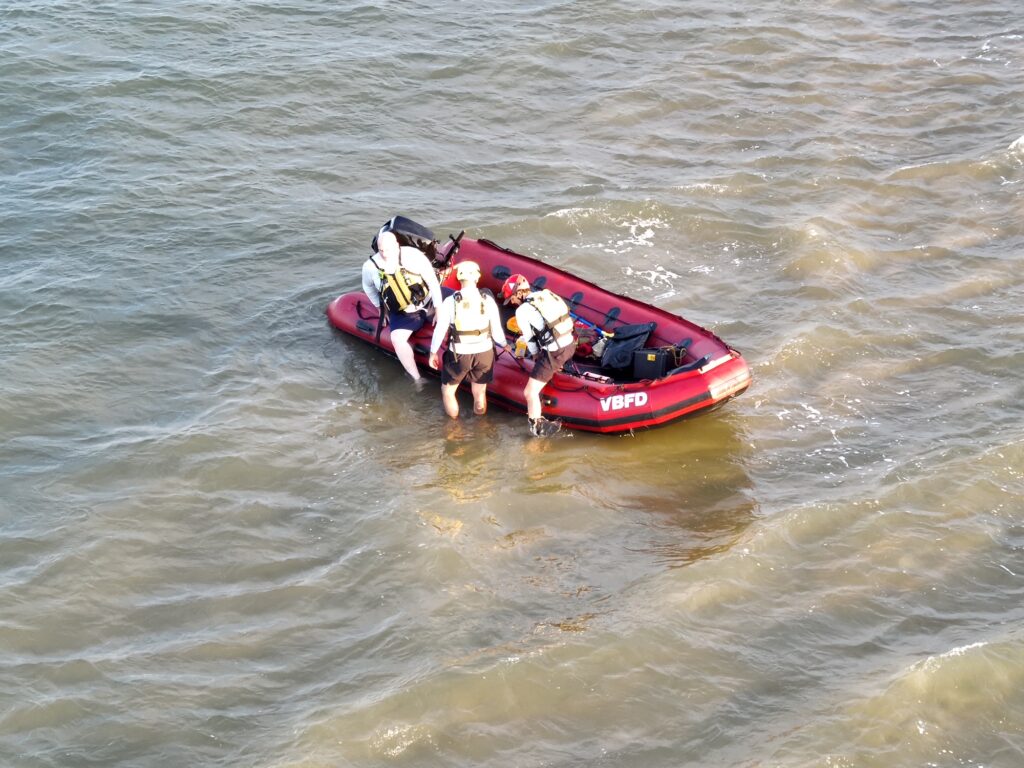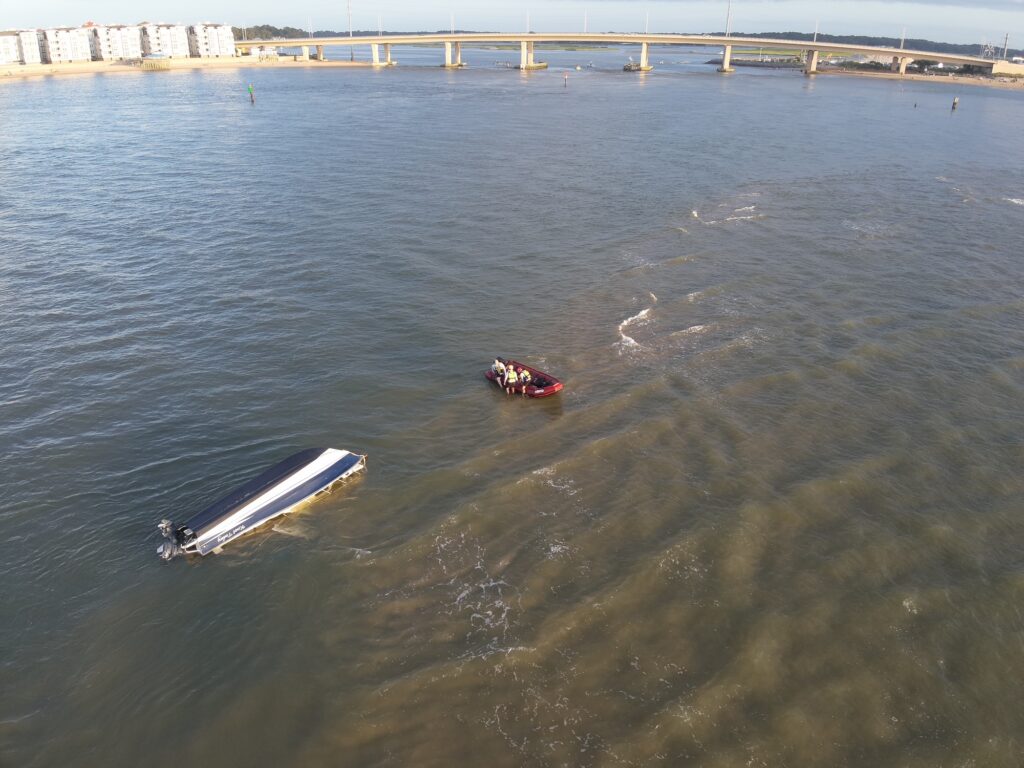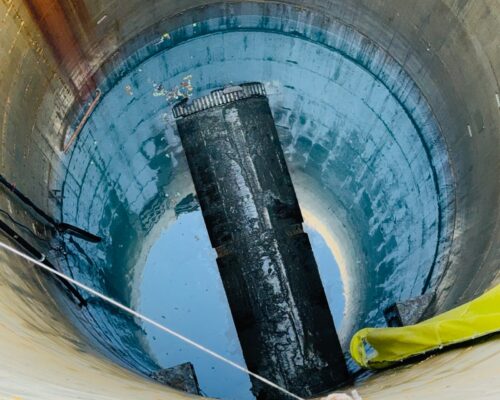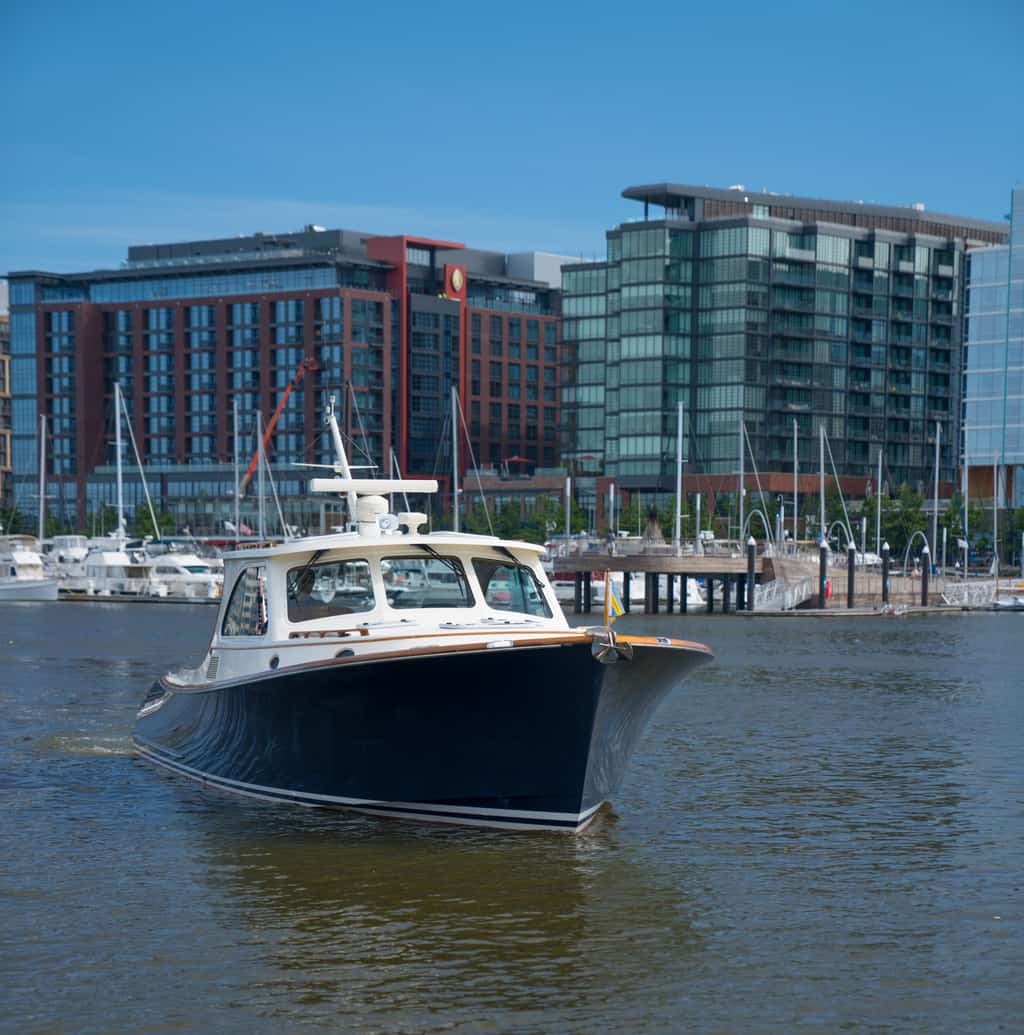A group of boaters escaped unharmed after they ran aground in bad weather, thanks to the Virginia Beach Fire Department (VBFD). Now the fire and rescue agency is urging boaters, both new and experienced, to take some key steps in case something goes wrong.
On June 28, the fire department received a call about a boat that ran aground with four people aboard near Chic’s Beach. It was breezy, about 10-15 knots of sustained breeze with higher gusts. The boat was a 26-foot cuddy cabin powerboat with twin outboard motors.
Aerial video from the fire department shows waves crashing over the boat as it lists to the side while grounded on the bottom.
The department first responded with a Personal Watercraft because it’s the quickest way to respond. Thankfully, no one was injured and the four stranded boaters simply needed transporting back to shore. VBFD’s fire boat arrived and, after helping the victims from the boat as waves crashed over it, safely brought them to Lynnhaven Marina.
VBFD Captain Shay Dortch tells Chesapeake Bay Magazine that these boaters most likely ended up in a bad spot due to lack of experience or familiarity with the waterway. The channel is narrow and the current can be strong, Capt. Dortch says.
The waterway is wide, but the deeper-water channel ends very abruptly. Markers indicate where the depth goes from 11 feet to 2-3 feet very quickly. Shoaling in the area has significantly changed the depth in some spots, thanks to storms and beach replenishment projects.
“You think you can cut the channel and you really can’t,” Dortch explains. Photos show just how shallow the area is where the boat ran aground.

To keep yourself out of harm’s way in these waters or any Bay waterway, pay close attention to the tide swings and the weather report, Dortch says. And don’t just search tide charts for a general area, like “Virginia Beach” or “Chesapeake Bay”. Find information specific to your launch location.
Think of what you’d do if you did get into trouble. Do you have friends in the area to call? Do you have a towboat membership? What about a policy that covers boat recovery in a case like this one, where the boat would need to be salvaged or recovered? Usually the boat owner is on the hook for those costs.
VBFD tells boaters to be sure their safety gear is up to date and not expired—life jackets, flares and other equipment.
Dortch urges boaters to take a free safety course from the Coast Guard Auxiliary or the BoatUS Foundation to brush up.
Most of all, he says, know your area and understand the water. Unlike in a car on the road, you can’t just pull over and wait it out when weather conditions get bad.




